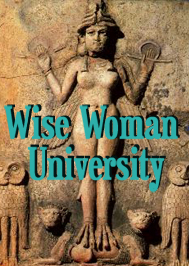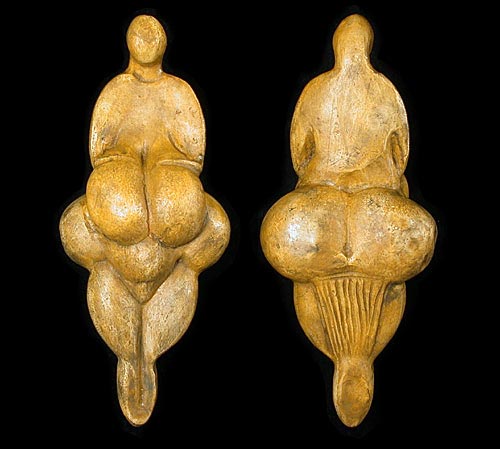(c) 2013 Self-Health Education, Inc.
What's in a belly? As revealed in my previous column, your belly hosts a microbiome, a world teeming with single-celled organisms, a.k.a. bacteria.
These 100 trillion bacteria in your gut, 1 to 3 percent of your body's mass, figure intimately in your physical and mental health. When balanced, in terms of their number and diversity, they support vital functions such as digestion, immunity, hormone production, and nerve communication.
But when they're out of balance, the gut bacteria likely play a key role in several body-mind disorders. Such disorders include autism, obesity, irritable bowel syndrome, inflammatory bowel disease, autoimmune diseases, allergies, and metabolic syndrome -- the collection of risk factors, including insulin resistance, that increase the likelihood of coronary artery disease, stroke, and diabetes.
The belly's microbiome is receiving all the more notice these days as intestinal infection with
Clostridium difficile becomes widespread. As the incidence of infection reaches
epidemic proportions, the death toll due to Clostridium difficile numbers more than 110,000 per year.
Because this pathogen forms drug-resistant spores, treatment with antibiotics is frequently ineffective. In fact, previous use of antibiotics has typically destroyed the beneficial bacteria that, if present in the microbiome, could eliminate the infection.
One method of treatment has demonstrated more than a 90% cure rate, though. Administering fecal microbial
transplantation, some physicians introduce a sample of bacteria from the gut of a healthy donor into their patients' intestines. The newly resident bacteria restore the patients' microbiota and their ability to eliminate the Clostridium infection.
Fecal microbial transplantation figures in research regarding
behavior as well as immunity. Dr. Mark Lyte's
experiments with mice, for example, show that patterns of anxiety and specific responses to stress can be initiated or eliminated depending on which
microbes set up shop in the rodent's gut.
The ways in which the microbiome figures in
gut-brain communication remain to be detailed. The pathways may involve the production of enzymes, hormones, and/or other biochemicals that interact with your
enteric nervous system and with your vagus nerve.
Your vagus nerve is a pair of cranial nerves extending from your brain into your abdomen and innervating your visceral organs. This nerve activates peristalsis, the wave-like motion of smooth muscle that ushers the proceeds of digestion through your intestines. Mess with peristalsis and you're vulnerable to constipation, diarrhea, an irritable bowel, and other imbalances.
But your vagus nerve does much more than send signals from your brain to your belly: 80-90% of the messages it carries travel from your gut back up to your brain. Your vagus nerve enables your brain to keep tabs on what's happening with you belly-wise.
However your belly bacteria may commune with your brain, they're essential for your body-mind well-being. Whatever the details of gut-brain communication may be, fecal microbial transplantation has a long history as a protocol for healing.
Western literature documents the treatment as taking place as early as the 17th century: Italian anatomist Fabricius Aquapendente applied fecal microbial transplantation in his practice of veterinary medicine.
According to
Dr. Faming Zhang and his colleagues, China's record of fecal microbial transplantation dates to the 4th century. Described in handbooks of emergency medicine in relation to food poisoning and severe diarrhea, the treatment "was considered a medical miracle that brought patients back from brink of death."
Venus of Lespugue
Some 26,000 to 24,000 years ago, an artisan in what we now call Western Europe carved a six-inch tall statuette from tusk ivory. Discovered in 1922 in the foothills of the Pyrenees, this figurine goes by the name of the Venus of Lespugue. At least one investigator suggests that the opening between the buttocks functioned as a vessel for fecal microbial transplantation.
Perhaps we can only imagine how this and other icons of the Feminine, sacred as we sense them to be, have figured in the scope of humans'
belly-centered well-being.
*********************

My workshops flow from my quest for the Sacred Feminine blended with my experience practicing and teaching yoga.
I've been a Kripalu Yoga instructor since 1979. I've also trained as a yoga and bodywork therapist.
From 1981 to 1988, I served on staff at Kripalu Center for Yoga & Health in Lenox, MA. During this time, I led yoga classes for thousands of guests, conducted a practice in bodywork therapy, designed workshops on many aspects of holistic health, and trained yoga teachers and bodyworkers.
In the course of my continuing yoga studies, I learned how cultures around the world have valued the body's center as sacred. Delving deeper into this subject revealed connections between the body's center and qualities of the soul, the extent of women's power in family and society, and the degree of a culture's reverence for Sacred Feminine.
Listen to an interview with Lisa Sarasohn
Study with Lisa Online!
Drawing on ancient wisdom and contemporary practice, we'll attend to our bellies' well-being. We'll engage in experiential learning, energizing the body-mind transformation that supports healing.
~ Initiation 2012: Awakening Your Sacred Center, Part One ~
(
Learn More Here )
This online course is the first part of an ongoing process through which you embody the Sacred Feminine by energizing your body's center with breath, image, story, and movement.
(New World Library, 2006) presents what I've learned about the body's center through  teaching and research over a period of nearly twenty years.
teaching and research over a period of nearly twenty years.
My articles on honoring the body's center have appeared in publications including Yoga Journal, SageWoman, Radiance, and Personal Transformation. My workshops have been sponsored by colleges and universities, health education agencies, and holistic learning centers.
My intention is to provide you an opportunity to delight in the vitality and pleasure, the creativity and confidence, the intuition and sense of purpose that already dwell within and emerge from your body's center. My greatest joy is to offer you ways to discover the Sacred Feminine as she already abides within you. ~~ Order Here ~~

 The Wise Woman University (WWU) is a sacred distance learning environment for the reweaving of the healing cloak of the Ancients.
The Wise Woman University (WWU) is a sacred distance learning environment for the reweaving of the healing cloak of the Ancients.
 My workshops flow from my quest for the Sacred Feminine blended with my experience practicing and teaching yoga.
My workshops flow from my quest for the Sacred Feminine blended with my experience practicing and teaching yoga. teaching and research over a period of nearly twenty years.
teaching and research over a period of nearly twenty years.
